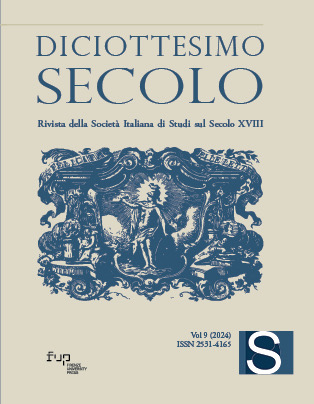Le mythe de la Pennsylvanie, l’Histoire des deux Indes et les Recherches sur les États-Unis de Filippo Mazzei
Published 2024-10-07
Keywords
- Colonial Pennsylvania,
- Mazzei,
- Quakers,
- Sentimental novel
How to Cite
Copyright (c) 2024 Guillaume Ansart

This work is licensed under a Creative Commons Attribution 4.0 International License.
Abstract
The “Myth of Pennsylvania,” an overly idealized representation of Pennsylvania, its founder William Penn, and the Quakers, was embraced by many 18th-century French philosophes. It appears in Voltaire’s Philosophical Letters (1734), Diderot and d’Alembert’s Encyclopédie (1751-65), and most prominently in Raynal’s influential History of the East and West Indies (1780). According to the myth, Penn’s colony offered an image of the Golden Age and a model of good government. William Penn was portrayed as a great legislator who established a popular representative government and gave laws that guaranteed civil liberties, maintained equality and ensured religious tolerance. As for the Quakers, their morals and customs were deemed to revive the virtues of early Christians. However, around the time of the American Revolution, many liberal intellectuals on both sides of the Atlantic responded critically to such idealistic distortions of American reality, no matter how well intended. Filippo Mazzei, a naturalized American citizen from Italy who played an important role in the War of Independence, is a good case in point. In the third of his four-volume Researches on the United States (1788), Mazzei develops an extended refutation of Raynal’s version of the myth of Pennsylvania. Penn is now depicted as a greedy, sly opportunist who mostly looked after his own interests and those of his family. Similarly, the Quakers are criticized for having always deftly advanced their own political and commercial interests, and for not having clearly supported the Revolution. Mazzei—and his friends Jefferson and Condorcet, who collaborated with him on the Researches in Paris—could only feel irritated by the propagation of utopian myths or fanciful notions about America when the goal of the Revolution was to establish a large modern republic founded upon human rights and a complex legal and constitutional apparatus. Refuting the myth of Pennsylvania meant also discrediting the outdated ideals of the philosopher king and the primitive virtuous utopia.

